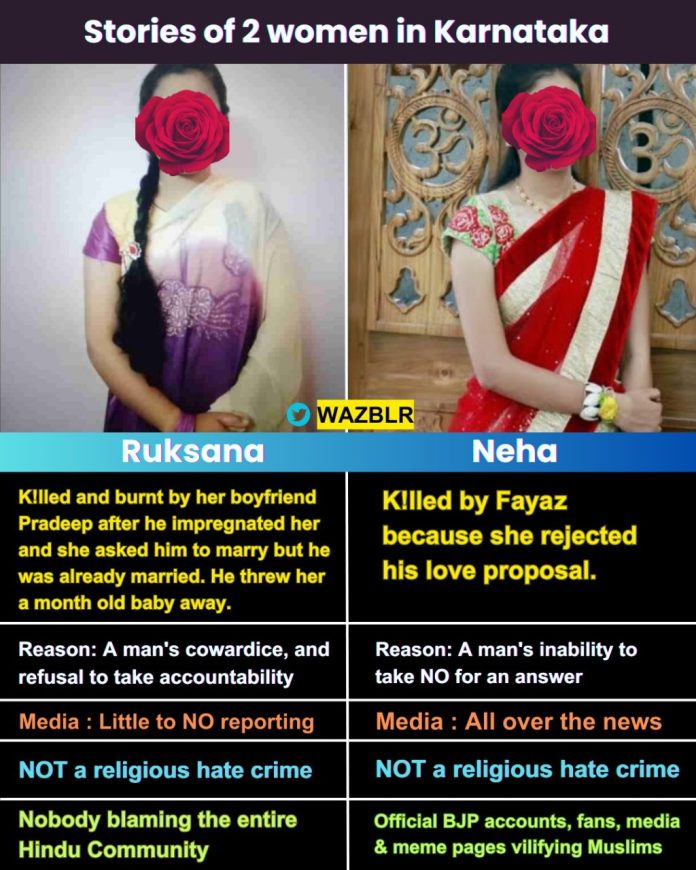– Yusra Firdaus
In Ruksana’s case, the overwhelming silence is unmistakable. Her story remains hidden under layers of indifference and negligence, forgotten by those in power. However, her voice calls out from the shadows, longing for recognition and the justice she deserves. On the other hand, Neha’s heartbreaking destiny has turned into a rallying cry, not just for justice, but for a divisive narrative surrounding ‘love jihad.’ Her name reverberates throughout the media, amplified by those who want to use her tragedy for their own political agenda. Amidst all the chaos and finger-pointing, the true essence of her humanity is often overshadowed.
The story of Neha’s tragic death has been manipulated for political purposes, causing the voices of others like Ruksana to be forgotten. In the rush to assign blame, the stories of those who suffer silently, like Ruksana, are being ignored. Their pain remains unseen and unheard amidst the noise of prejudice and bias. There is no outcry for justice for Ruksana, as her story is pushed to the sidelines of society’s awareness.
The stark contrast highlights a deep truth: the pursuit of justice should go beyond religious, caste, and political divides. While Neha’s story may grab headlines, there are many Ruksanas whose challenges are hidden and ignored. It is by acknowledging this inequality, by giving a voice to the marginalized, that real justice can be achieved. This viewpoint emphasizes the significance of empathy and unity in times of distress, encouraging us to see beyond surface-level stories and address the root causes of systemic injustice and inequality.
While justice must be served for Neha, we cannot allow the quest for justice to overshadow the need for accountability in Ruksana’s case. Crime knows no boundaries of religion or community; criminals must be apprehended and brought to justice irrespective of their affiliations. It is imperative that we refrain from attributing blame to entire communities and instead focus on holding individual wrongdoers accountable. Let us not judge based on religion or community, but rather direct our scrutiny towards the perpetrators of crime and ensure that the law takes its course.




